Reading proficiency Normal Phonics Worksheets for Ages 4-6
6 filtered results
-
From - To
Enhance your child's reading skills with our Normal Phonics Worksheets designed specifically for ages 4-6! Our engaging and interactive worksheets focus on reading proficiency, laying the foundation for strong literacy development. Each worksheet features fun, age-appropriate activities that immerse young learners in phonics, including letter recognition, sound association, and blending skills. These resources not only promote reading comprehension but also spark a love for learning. Perfect for at-home practice or classroom use, our worksheets provide an enjoyable way for children to build confidence in their reading abilities. Discover the joy of phonics and watch your little one thrive!
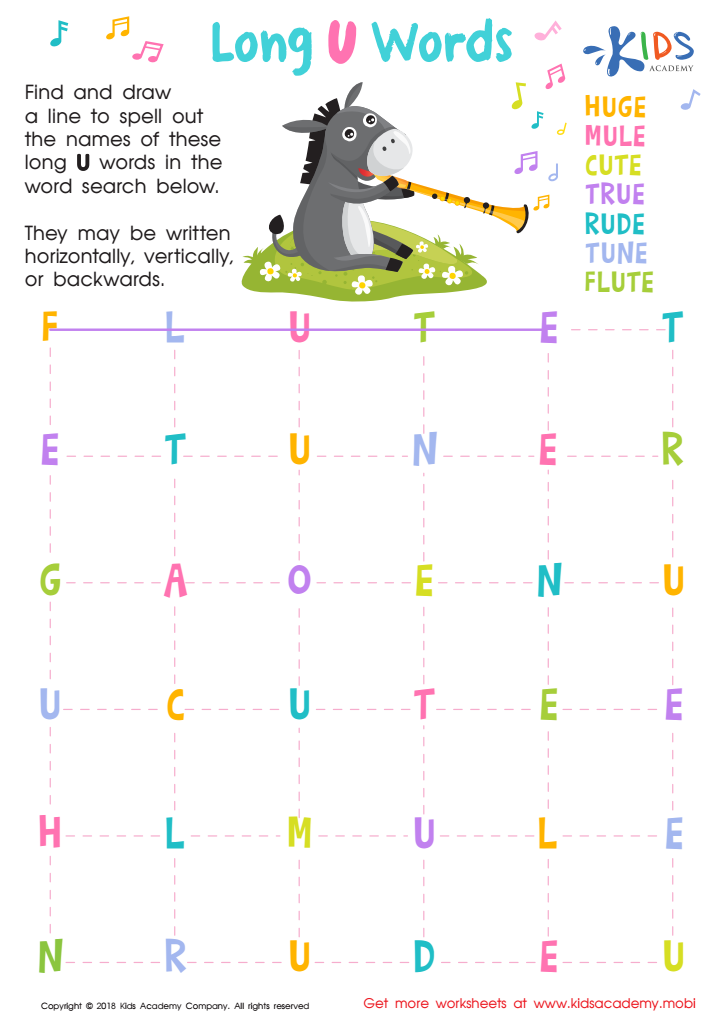

Long /u/ Words Worksheet
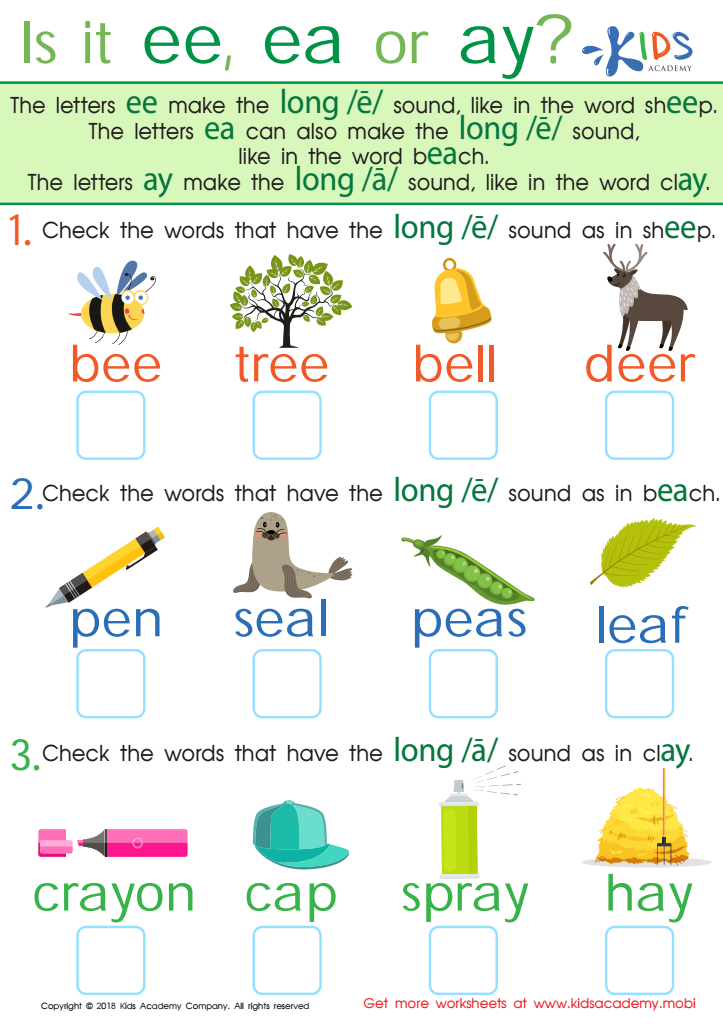

Is It EE, EA, or AY? Worksheet
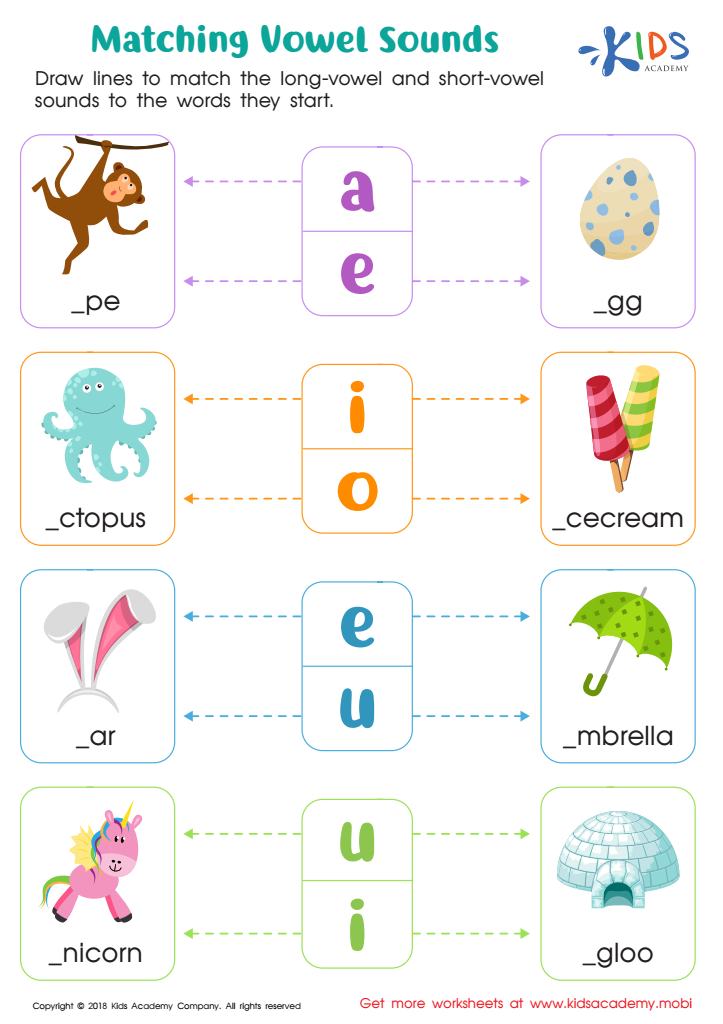

Matching Vowel Sounds Worksheet


Long and Short U Worksheet
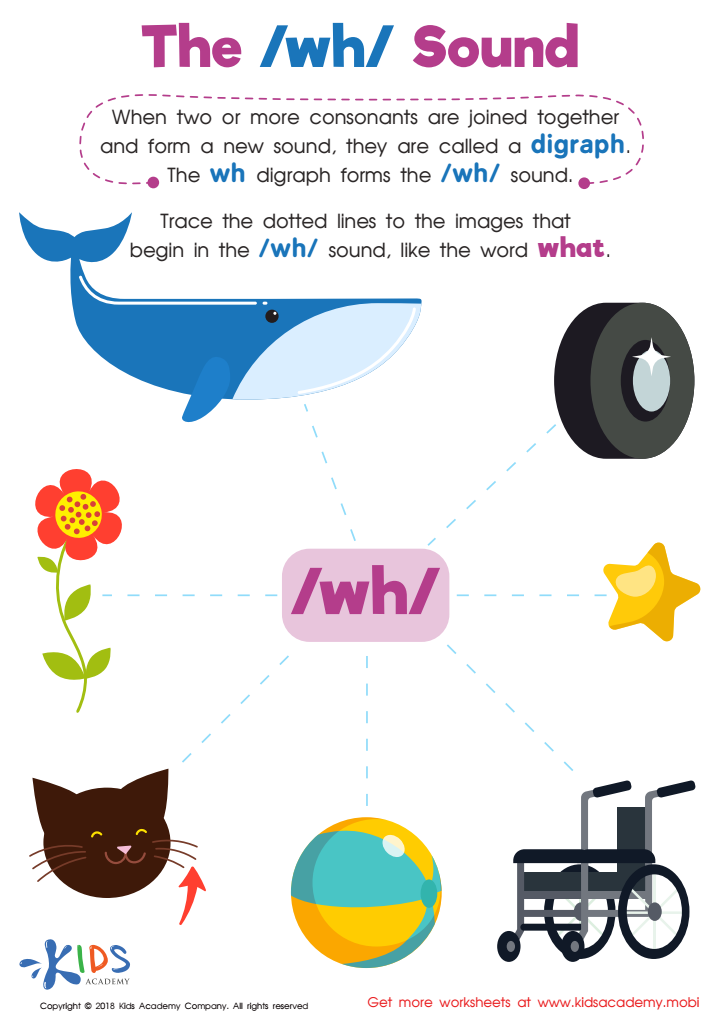

The /wh/ Sound Worksheet
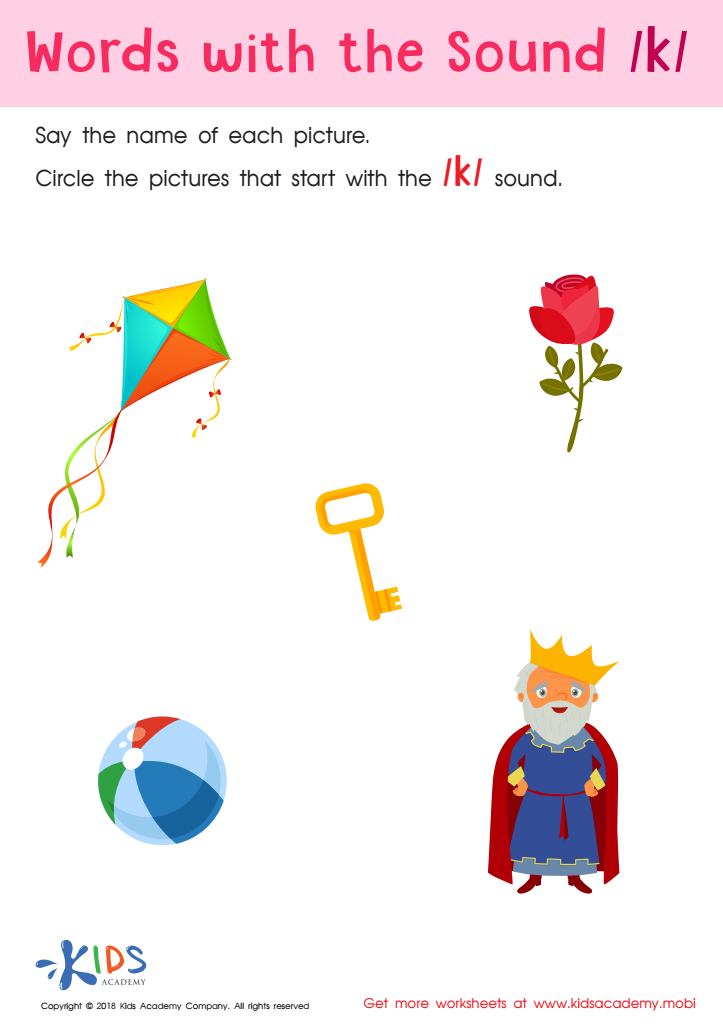

Words with sound k Reading Worksheet
Reading proficiency is crucial for children aged 4-6 as it lays the foundation for their future academic success and overall development. Early literacy skills, including phonics, help young learners decode words, build vocabulary, and enhance comprehension. The Normal Phonics approach equips children with the ability to connect sounds to letters, an essential step in their reading journey.
Understanding phonics enables children to become confident readers, fostering a love for books and a desire to learn. As kids engage with texts, they develop critical thinking skills and imagination, which are vital for their cognitive growth. Moreover, increased reading proficiency leads to better performance in all subjects, as literacy is integral to learning across the curriculum.
For parents and teachers, nurturing reading skills early on means equipping children with necessary tools for lifelong learning. Support during this formative stage can bridge gaps in learning and prepare kids for more complex literacy tasks. By prioritizing reading proficiency and phonics, caregivers play a pivotal role in shaping a child's educational pathway and boosting their self-esteem and social skills as proficient readers often enjoy improved peer interactions and classroom confidence. Therefore, fostering these early literacy skills should be a central focus in early childhood education.
 Assign to My Students
Assign to My Students















